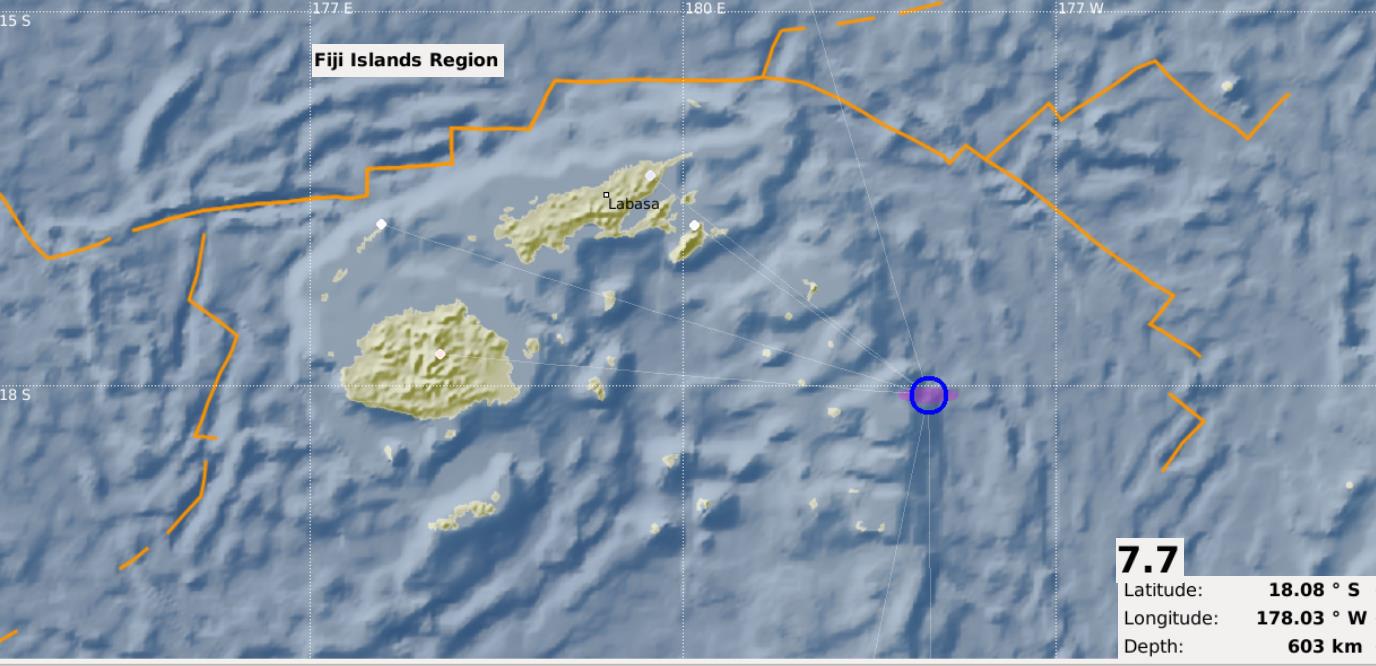THE revelation that the Mineral Resources Department recorded 10 aftershocks following the 7.5 magnitude earthquake that occurred south-west of Fiji on Friday morning must make us sit up and take notice.
As permanent secretary for Ministry of Lands and Mineral Resources Malakai Finau said, with seismic events of such nature being recorded, people should remain alert at all times.
He highlighted “the continuing seismic events for the past few weeks and the high magnitude earthquake event that occurred” on Friday.
He said it reaffirms our location in an earthquake prone area.
He said it was difficult to predict if an earthquake would occur during a particular time in an area.
The recent events, however, should be a reminder for us all of the need to be aware and mindful that such events occur in our part of the world. There is a great need for us to be alert and prepared at all times.
The early morning earthquake occurred at a depth of 664km, 38km south-west from Maloku Village on Moala, 46km south-east from Gau Island, and 114km south-east from Suva.
It did not pose any immediate threat to the Fiji region.
What is worrying though is the frequency of the quakes and their strength.
Perhaps we could take lessons from the strength of the recent quakes and channel this to issues pertaining to our building code for instance.
How are we placed with disaster management and risk assessment should a massive quake strike closer to home?
The Capital City for instance is fast developing in terms of structures and population.
How prepared are we in terms of response time and in the event there is devastation and structural damage?
Warning sirens echoed throughout the Capital City on Thursday morning.
They were loud and definitely attracted attention.
The National Disaster Management Office director Anare Leweniqila said they had tested the tsunami sirens they had allocated in some parts of Suva and Lami.
The siren testing, he said, was also a way for people to get accustomed to the sound “which would help enormously in the event of a tsunami threat that warrants evacuation” the NDMO said in a statement.
We can never rule out the possibility of a tsunami in the wake of an earthquake.
That’s the harsh reality of life.
Now that we know the sirens do work, how are we placed when it comes to actually taking action in the wake of the sirens?
Are we even prepared for the “big one”?
We are a country prone to cyclones, flooding and we have had a few scares when tsunami alerts were sounded.
We did have a recorded event that happened in 1953. It left fish high and dry on Albert Park and eight people were reported dead.
The waves came in the wake of an earthquake that shook and damaged buildings in Suva.
A similar tsunami now would definitely have a more devastating impact on the Capital City.
The city has grown significantly in terms of buildings and the number of people who work and travel through Suva daily.
Are we even prepared for a tsunami?
There will no doubt be questions hanging over our preparedness for an operational environment, considering various possible scenarios and the scale of emergency.
The next key question is whether there is a plan to test our response time?
There will be questions about decision-making under such an emergency and communication processes.
How does this operate at the national level?
There can be no room for confusion or second-guessing in such scenarios.
We must be prepared.






